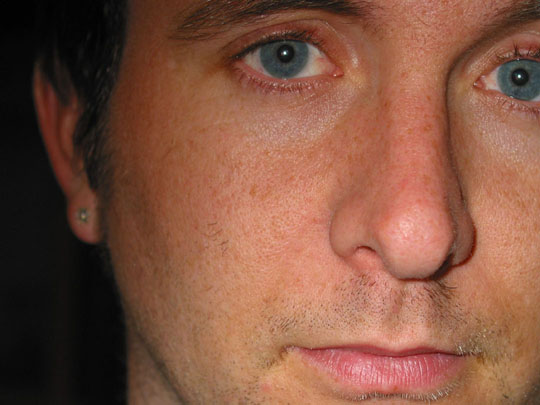

Into the Wild
Grade: B
After everyone went gaga for Into the Wild at the Toronto Film Festival and a friend told me it was his favorite movie of the year so far, I thought a transcendent experience awaited me when I sank into my chair and waited for the lights to go down. Even with all the hoopla I had my reservations. With overwrought films like The Crossing Guard and The Indian Runner to his name, I've never been a big fan of Sean Penn's directing style. I've never read a Jon Krakauer book, so I can't tell you if this is a faithful adaptation of his true account of Christopher McCandless - the Emory University grad who gave all his savings to charity, fled from society and eventually died after accidentally ingesting a poisonous plant in the middle of Nowhere, Alaska.
This is Sean Penn's best outing as a director so far, but it hardly establishes him as a first class director. Cinematographer Eric Gautier fills the frames with lovely shots of seagulls, white water rapids, mountains and other natural wonders. As though channeling the Christopher's spirit of wild abandon, Penn throws in some brave and unconventional visual techniques, like handwritten snippets of Christophers' diary entries sprawled across the screen.
My big question is why Penn didn't take this idea further. With the handwriting and one shot where Emile Hirsch (who plays Christopher) looks directly into the camera with a knowing smile, Penn is playing the risky game that theater folks refer to as "breaking the fourth wall." These techniques are meant to shake viewers out of their laid back passive positions and urge them to take a more active role. But for most of the movie Penn sticks to fairly conventional storytelling techniques, which to my mind results in a half-assed and negligibly daring filmmaking when all is said and done. In short, I wanted to see Penn take more stylistic risks as the story unfolded to show Christopher taking more and more risks with his life.
By the time was over I didn't feel nearly as invested in Christopher's plight as I thought I would. Owing to Penn's technique or perhaps my lukewarm response to Hirsch's acting, I didn't particularly like Christopher, and certainly didn't view his death as a tragedy because - stranded out in the middle of nowhere with limited survival skills to his name - he probably would have died anyway. Penn certainly doesn't paint Christopher as a desperately suicidal figure, but that doesn't mean that his actions aren't suicidal on some level.
There's Oscar buzz about several supporting cast members, including Catherine Keener and Hal Holbrook. They're both engaging, but I didn't find either performance to be remarkable. Marcia Gay Harden and William Hurt, both reliable performers in general, turn in painfully forced performances as Christopher's bereft parents, and my guess is that Penn - who can be way too literal and way too solemn - steered them in this shitty direction.


1 Comments:
Thanks, Stephen, for this candid and insightful review. One of the central challenges of the book was McCandless' likeability. I think you might find the book more interesting than the film - Krakauer is a very good writer and he is fascinated by what drives individuals to extremes. I think he works with that kind of subject matter with complexity. Sounds like Penn doesn't as much, despite good intentions.
Post a Comment
<< Home